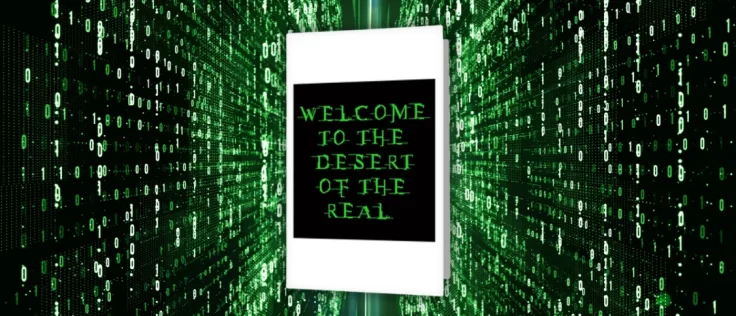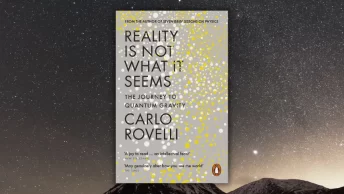Welcome to the Desert of the Real PDF is a book by the Slovenian philosopher and cultural critic Slavoj Žižek, which was first published by Verso Books in 2002. The book is a collection of essays and lectures that Žižek gave in the aftermath of the September 11 attacks in the United States.
The book has received mixed reviews, with some critics praising Žižek’s insightful analysis of the cultural and political implications of 9/11, while others have criticized his tendency towards obscure and convoluted prose. Nevertheless, the book remains a popular and influential work in contemporary cultural theory.
One of the central themes of “Welcome to the Desert of the Real” is the idea that the events of 9/11 represented a traumatic rupture in the fabric of global society. Žižek argues that the attacks exposed the fragility of our political and economic systems and that they revealed the contradictions and tensions that underlie contemporary global capitalism. Welcome to the Desert of the Real is available in a variety of formats, including paperback, hardcover, and ebook.
Table of Contents
Welcome to the Desert of the Real Summary
The book is a collection of essays and lectures that were written in response to the September 11 attacks in the United States. Žižek argues that the attacks on 9/11 were a traumatic event that exposed the fragility of our political and economic systems. He believes that the attacks revealed the contradictions and tensions that exist within contemporary global capitalism.
In the book, Žižek also explores the relationship between fantasy and reality in contemporary culture. He argues that our culture is characterized by a hyperreality in which our fantasies and desires are increasingly indistinguishable from reality. He suggests that this blurring of the boundaries between fantasy and reality has important implications for politics, as it makes it difficult to distinguish between genuine political change and mere spectacle.
Throughout the book, Žižek uses examples from popular culture and film to illustrate his arguments. He discusses topics such as the Matrix trilogy and the TV show “The West Wing” to demonstrate how contemporary culture reflects and reinforces our understanding of the world.
Details of Welcome to the Desert of the Real Book
| Book | Welcome to the Desert of the Real |
| Author | Slavoj Žižek |
| Original language | English |
| Originally published | 2002 |
| Category | Non Fiction |
| Publisher | Verso Books |
| Total Pages | 154 |
| Format | PDF, ePub |
Welcome to the Desert of the Real PDF Free Download
Click on the download button below to get a pdf file of Welcome to the Desert of the Real book.
Multiple Languages Editions of Welcome to the Desert of the Real Book
“Welcome to the Desert of the Real” by Slavoj Žižek is available in English, French, Spanish, German, Italian, Japanese, Chinese, Korean, Portuguese, Turkish, and Serbian, among other languages.
| Book Editions | Check Now |
|---|---|
| English | Check Price |
About the Author
Slavoj Žižek is a Slovenian philosopher and cultural critic who was born on March 21, 1949, in Ljubljana, Slovenia. He obtained a Ph.D. in philosophy from the University of Ljubljana and has gone on to become one of the most prominent philosophers of our time.

Žižek has published over 50 books and hundreds of articles, and his work covers a wide range of topics, including philosophy, psychoanalysis, politics, and culture. He is known for his unique style of writing and speaking, which combines academic rigor with a sense of humor and a willingness to engage with popular culture.
Žižek has held academic positions at universities around the world, including the University of Ljubljana, the University of Essex, the University of London, and the European Graduate School. He has also been a visiting professor at numerous other universities, including Columbia University, Princeton University, and the University of Chicago.
Žižek has been the subject of numerous documentaries and has appeared as a commentator on various news and political programs. He is known for his leftist political views and his critiques of neoliberalism and globalization. He has been awarded numerous honors for his contributions to philosophy and cultural theory, including the Theodor W. Adorno Prize in 2013.
Similar Books to Welcome to the Desert of the Real Book
- The Terror of Neoliberalism by Henry A. Giroux
- The Culture of Control: Crime and Social Order in Contemporary Society by David Garland
- The Shock Doctrine: The Rise of Disaster Capitalism by Naomi Klein
- Mastering Modern World History by Norman Lowe
- Capitalist Realism: Is There No Alternative? by Mark Fisher
- The End of History and the Last Man by Francis Fukuyama
- Manufacturing Consent: The Political Economy of the Mass Media by Edward S. Herman and Noam Chomsky
- The Society of the Spectacle by Guy Debord
- Postmodernism, or, the Cultural Logic of Late Capitalism by Fredric Jameson
FAQs(Frequently Asked Questions)
What is the synopsis of Welcome to the Desert of the Real?
Welcome to the Desert of the Real is a collection of essays by Slavoj Žižek. It explores the political and cultural implications of the September 11 attacks and the relationship between fantasy and reality in contemporary culture.
Where did Welcome to the Desert of the Real come from?
“Welcome to the Desert of the Real” was written by Slavoj Žižek, a Slovenian philosopher and cultural critic, and was first published in 2002.
What does desert symbolize in the Welcome to the Desert of the Real book?
In the “Welcome to the Desert of the Real” book, the desert symbolizes a space of radical freedom and possibility, in contrast to the constraints and limitations of the current political and economic system.
How long does it take to read Welcome to the Desert of the Real book?
The time it takes to read “Welcome to the Desert of the Real” depends on the reader’s reading speed and comprehension.
Who is the target audience of Welcome to the Desert of the Real book?
The target audience of “Welcome to the Desert of the Real” is anyone interested in the relationship between politics, culture, and ideology, particularly in the context of the September 11 attacks and the aftermath.







